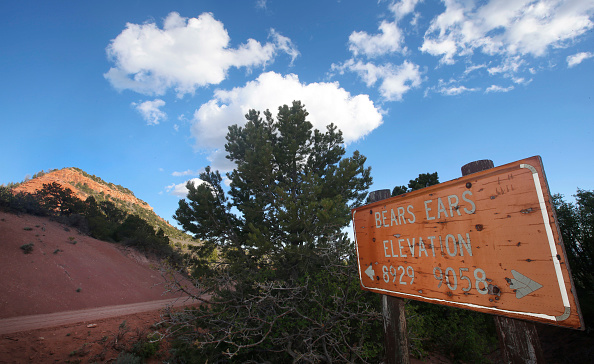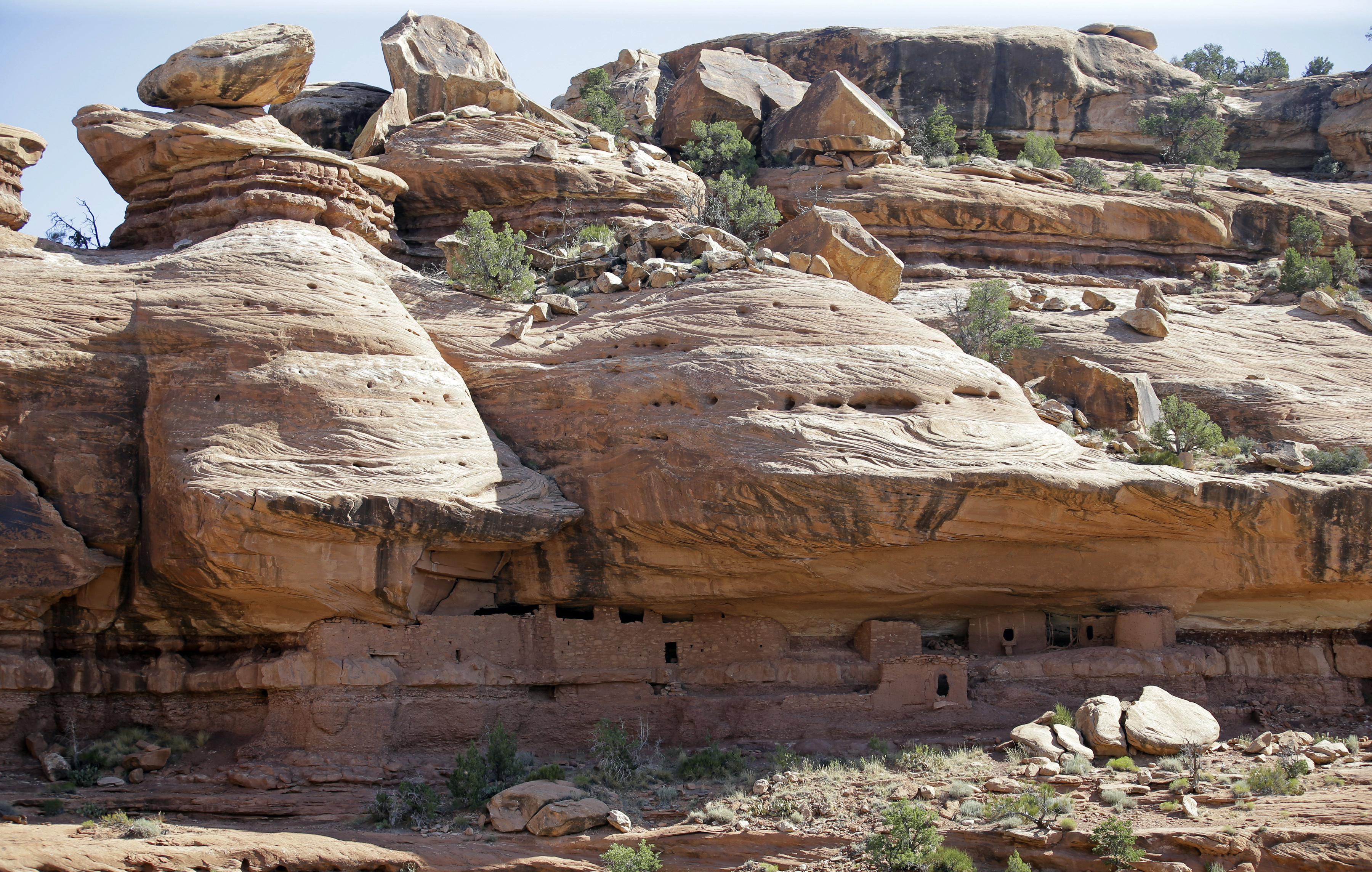The Trump administration designated a Civil War site in Kentucky as a national monument, a decision that runs counter to the administration’s emphasis on reducing the size of national monuments. The move has sparked skepticism among green groups.
President Donald Trump signed a proclamation on Friday — under authority of the Antiquities Act of 1906 — declaring Camp Nelson a national monument. Located in Jessamine County, Kentucky, Camp Nelson was a key site of emancipation for African American soldiers and a refugee camp for their families during the Civil War.
In recent weeks, the U.S. Department of the Interior has been announcing additions to a network of historic sites related to African Americans and the civil rights movement.
Conservation groups agreed the 525-acre Camp Nelson was fully deserving of being declared a national monument. But they also noted the irony of the designation.
It’s at odds with the administration’s ongoing attack on national monuments, which began with Trump’s April 2017 executive order that required the Department of the Interior conduct a review of national monuments due to “modern Antiquities Act overreach” by previous administrations.
The Trump administration’s opposition to the Antiquities Act, for instance, was put on full display when it was used to decimate the Bears Ears and Grand Staircase Escalante National Monuments in December 2017.
Along with the irony of Trump using the Antiquities Act to designate Camp Nelson a national monument, the timing of the announcement calls into question whether the administration is attempting to help a Republican keep his seat in the House of Representatives.
The Camp Nelson designation is coming at a time when Rep. Andy Barr (R-KY), whose district includes Camp Nelson, is facing a tough reelection battle against Democrat Amy McGrath. Barr had lobbied hard to get the Trump administration to designate Camp Nelson a national monument.
Barr also has been pushing the designation of Camp Nelson in Congress all year, a move that is popular with his constituents in Kentucky’s 6th congressional district. His bill to protect the monument passed the House this year. The 6th congressional district includes the cities of Lexington, Richmond, and Frankfort, the state capital.
Interior Secretary Ryan Zinke and Barr attended a ceremony on Saturday celebrating Camp Nelson’s designation. Zinke told reporters the designation was not timed to give Barr a boost heading into the election. The Interior Department noted that all members of the Kentucky congressional delegation were invited to the ceremony.
One week before the election, Barr remains in a really tight race with McGrath, with polls showing it as a toss-up.
In a statement emailed to ThinkProgress on Monday, Ana Unruh Cohen, managing director for government affairs for the NRDC Action Fund, said: “Protecting our national monuments isn’t about politics. It’s about smart stewardship of our historic and natural resources.”
The nation must preserve African American history, Theresa Pierno, president and CEO of the National Parks Conservation Association, emphasized, adding that the Antiquities Act serves as a powerful tool to preserve special places.
But Pierno, in a statement issued Saturday, said she found it ironic that the Trump administration would use the same law to protect this site after “arbitrarily gutting protections for Bears Ears and Grand Staircase-Escalante National Monuments in Utah.”
The National Parks Conservation Association has joined many Native American tribes, environmental groups, and businesses challenging the administration’s actions against Bears Ears and Grand Staircase-Escalante in court. They argue that the Antiquities Act doesn’t give the president authority to reduce the size of monuments created under prior administrations. The lawsuits over the monument reductions were filed in the U.S. District Court for the District of Columbia.
Camp Nelson was one of the largest Union Army recruitment centers for African American Union soldiers, then known as United States Colored Troops. During the Civil War, thousands of enslaved African Americans escaped to Camp Nelson.
Today Camp Nelson becomes our newest national monument, helping tell the story of African-American soldiers during the #CivilWar & more: https://t.co/SOEbhY5yPC pic.twitter.com/MpBxp9XDdd
— US Department of the Interior (@Interior) October 27, 2018
“Camp Nelson tells a key part of the story of the African American military experience during the Civil War,” Cohen said. “This site by all means deserves our country’s highest protection.”
Cohen said it’s ironic, though, to see Trump and Zinke “discover the value of the Antiquities Act” after they have been working hard to gut the law by “eviscerating protections for two of America’s national monuments, Bears Ears and Grand Staircase Escalante.”
Environmental groups also emphasized that Trump’s designation of Camp Nelson as a national monument could be as equally temporary as the designations of Bears Ears and Grand Staircase-Escalante under previous administrations.
“America’s national monuments are monuments to our history and heritage, from African Americans who served in the Civil War at Camp Nelson, to Native Americans from five tribes who honor Bears Ears as their ancestral homeland,” Jennifer Rokala, executive director of the Center for Western Priorities, said after Trump issued his proclamation on Camp Nelson.
“An attack on one monument is an attack on all monuments, so it is long past time for President Trump and Secretary Zinke to stop undermining and start honoring the legacy of all Americans,” Rokala said.


